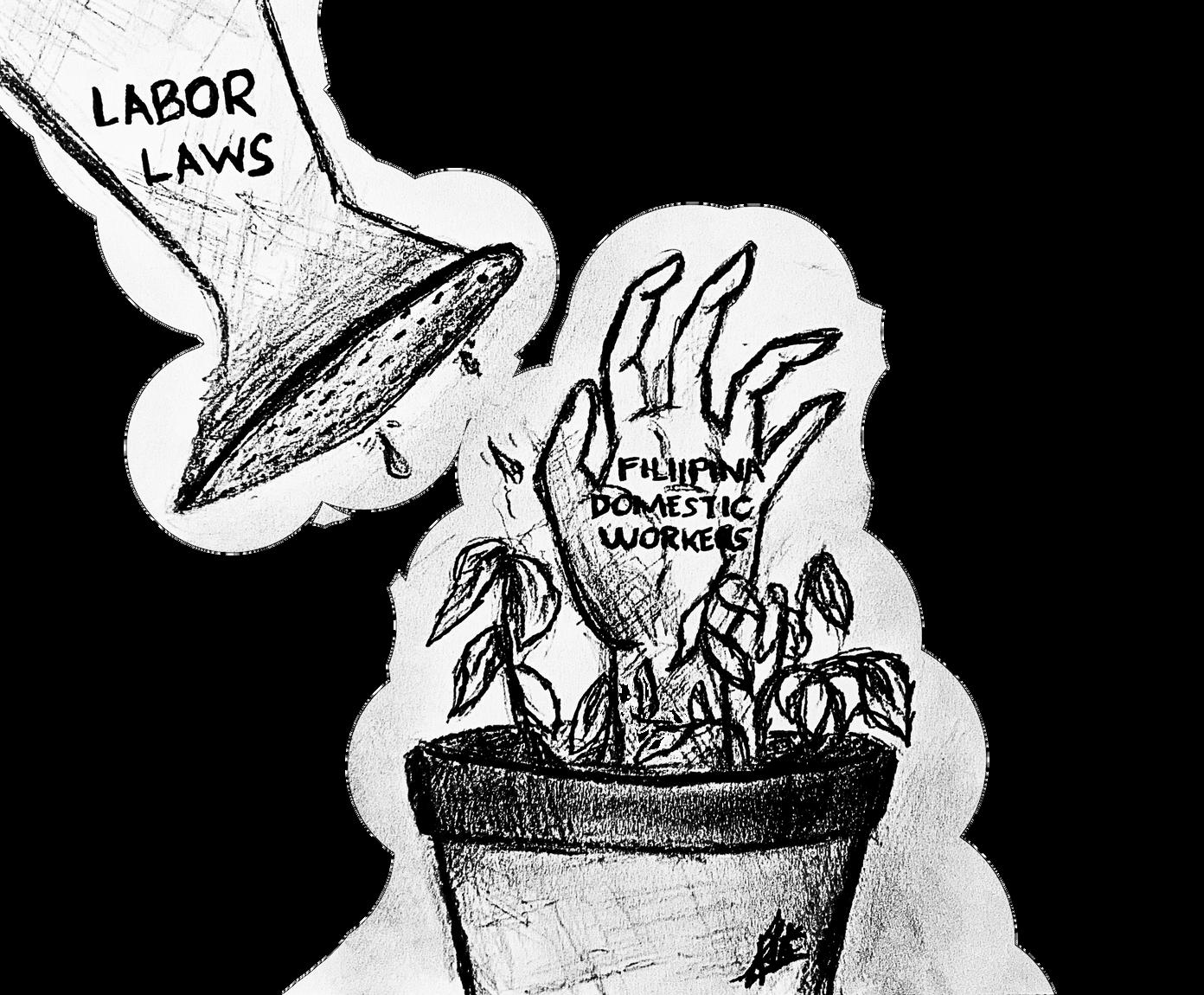
3 minute read
Saltwillforeverbeessential toFilipinos,Asin!
InthePhilippines,“asin,”alsoknownassaltinEnglish,willalwaysbeanimportantindustrysectorfor Filipinosandallcitizensglobally Theindustryofsaltevenmadeglobaleconomicspossible Saltisnotjustfor each personʼs daily use, whether as food, in producing different kinds of materials, or in the manufacturer's component;saltcanalsobemadeforemploymentopportunitiesandoneʼsbusiness Thesaltindustryalways sustainsFilipinosthroughcountlessopportunitiesthatshapeoneʼslifeintobetterone
Even though salt is a natural advantage and is essential to the Philippines, in the year 2023, the industry starts to face numerous problems and challenges, such as the competition from imported salt from different countries, the lack of innovation and technology, the ongoing pandemic, as well as the diminution of local production How can people sustain the vitality, process, and production of salt? How will they develop a more enhanced salt industry? The significance of salt and its sector should never be disregarded; hence, it should constantly be enriched and acknowledged because it helps everyoneʼs health and produces various products and materials
Advertisement
According to CNN Philippines (2023), The Philippine Salt Industry Development Act (PSIDA) is a bill that seeks to create a comprehensive development plan to revitalize the Philippine salt industry The House of Representatives has approved this bill on its third and final reading The implementation and approval of PSIDA is the path to a brighter and more innovative salt industry The Department of Agriculture in the Philippines is also assigned the measurement that the produced local salt is always the countryʼs top priority
Through the years, researchers have found that the Philippines can import around 550,000 metric tons of salt, equivalent to 93 percent of the nationʼs salt requirement When produced and increased appropriately, salt can be someoneʼs source of income and livelihood



Salt is vital to everyone! Proper investments, improvements, and planned developments for the Philippine salt industry can lead to a wealthier and better economy The effectuation of different programs from the Philippines, such as the “Oplan Asin: Pasiglahin, Sariling Ating Asin!” also known as the Development of Salt Industry Project (DSIP), and the Philippine Salt Industry Development Bill can lead to a persons prosperity and liveliness The Oplan Asin that began in 2022 aims to increase and improve Philippine quality salt production It is also designed to narrow every gap within its industry and commodity production The program of salt iodization, or the Act for Salt Iodization Nationwide (ASIN LAW), was approved in 1995 by former Philippine President Fidel V Ramos The Philippine Salt Industry Development Bill aims to improve government strategies to fully boost local salt production Salt producers also say it can shield the country from global supply chain vulnerabilities
Truly, salt is more than a great value These are but a few of the many programs implemented and currently effectuating in the Philippines Salt will forever be a need by everyone, but it is only limited, so we should protect and manage it deliberately Salt is an all-rounder substance that adds flavors to food and is used to make materials Salt together with other substances is equally vital The salt industry is a livelihood to many; this industry shall be appreciated not ignored Improvement starts now; cherish each pinch of salt and of course its ambition
Weareinthemodernera,wheretechnology,gadgets,andtheinternetarepartofdailylife.
We scroll and browse the internet as the primary use to attain many of our necessities As far as I can see, this era gives us many opportunities, education, and experiences online that may affect our real lives. However, despite being in this era, have we ever asked ourselves if everyone has access to this opportunity? Can every man and woman use technology? Little did we know, an underlying issue leaves a compelling gap in utilizing technology and even in genderequality
During one of the meetings of the 67th Session of the Commission on the Status of Women (CSW67) at the United Nations Headquarters in New York, USA, Department of Information and Communications Technology (DICT) Undersecretary Anna Mae Yu Lamentillo highlighted the Philippine government's initiatives to address the digital gender gap
The real world has always been evident in gender inequality, and this is now being mirrored in the digital dimension Digital Gender Gap refers to the large gap and difference between women's and girlsʼ compared to men's and boys' access to technology and the internet It states that many areas in the world exist where women and girls no longer have access to technology Boys are more involved in technology than girls, and they are more likely to surf the internet
In addition, once poverty is mentioned, this gap widens as more poor women and poor girls cant engage online And in efforts to bridge this gap, Lamentillo stated that Philippine laws such as the Magna Carta of Women, Anti-Discrimination Against Women Act, Anti-Violence Against Women and Children Law, and Safe Spaces Act, among others, create an enabling environment where Women and Girlsʼ rights and safety are promoted and protected to allow them to achieve their full potential Every citizen needs to be acquainted with these laws; how else will the issue be solved? Once the law is established, women and girls may be protected, and justice may be served, but can these laws give them the right technology they deserve?
Furthermore, this pandemic turned many services, productions, information, and experiences that were all physically accessible online, and this somewhat became our new regular We thought that during this pandemic, life had become more straightforward for us because we could easily buy both material and immaterial goods online We didn't realize that gender inequality is lingering in society, plus the pandemic results in the digital gender gap worsening
sabelle Celine V Contreras







